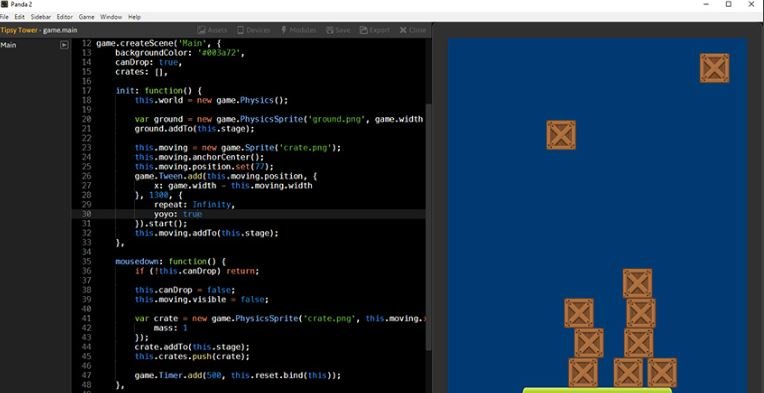JavaScript has become a popular choice for browser-based game development due to its versatility and ease of use. As a high-level programming language, JavaScript allows developers to create interactive and engaging games that run directly in web browsers without requiring additional plugins. With the advent of HTML5 and WebGL, the capabilities of JavaScript in game development have significantly expanded, enabling the creation of complex and visually stunning games.

Game Engines and Libraries
There are several game engines and libraries available that simplify the process of developing games with JavaScript. Popular choices include Phaser, Babylon.js, and Three.js. These frameworks provide built-in functionalities such as rendering graphics, handling user input, and managing game physics, which save developers time and effort. Phaser, for instance, is known for its easy-to-use API and powerful features, making it a great starting point for beginners and experienced developers alike.
Creating Interactive Graphics
JavaScript, in conjunction with HTML5 Canvas and WebGL, allows for the creation of rich, interactive graphics that are essential for engaging gameplay. The Canvas API provides a way to draw shapes, text, images, and other objects directly onto a web page. WebGL, on the other hand, enables hardware-accelerated 3D rendering, allowing for more complex and visually appealing graphics. By combining these technologies, developers can create both 2D and 3D games that captivate players.
Handling User Input
User input is a critical aspect of game development, and JavaScript excels in this area with its robust event handling capabilities. Developers can capture and respond to various user interactions, such as keyboard presses, mouse movements, and touch gestures. This responsiveness is essential for creating a seamless and immersive gaming experience. By utilizing JavaScript’s event listeners, developers can ensure that their games react swiftly and accurately to player actions.
Implementing Game Logic
JavaScript’s flexibility makes it ideal for implementing game logic, which dictates the behavior and rules of a game. Game loops, collision detection, and state management are some of the core components that can be efficiently handled using JavaScript. Game loops keep the game running smoothly by continuously updating the game state and rendering graphics. Collision detection algorithms ensure that game objects interact realistically, adding to the overall immersion. State management helps track the progress and status of a game, enabling features like saving and loading game data.
Optimizing Performance
Performance optimization is crucial in game development to ensure that games run smoothly on various devices and browsers. JavaScript developers can employ several techniques to enhance performance, such as minimizing memory usage, reducing the number of DOM elements, and leveraging hardware acceleration through WebGL. Additionally, developers can use tools like Chrome DevTools to profile and debug their code, identifying and resolving performance bottlenecks.
Integrating Audio and Sound Effects
Audio plays a significant role in enhancing the gaming experience by providing feedback and creating an immersive atmosphere. JavaScript, along with the Web Audio API, allows developers to incorporate sound effects and background music into their games. The Web Audio API offers advanced features such as spatial audio, audio effects, and real-time audio processing, enabling developers to create rich auditory experiences that complement their game’s visuals and gameplay.
Cross-Platform Compatibility
One of the major advantages of using JavaScript for game development is its cross-platform compatibility. Games developed with JavaScript can run on various devices, including desktops, laptops, tablets, and smartphones, as long as they have a web browser. This broad compatibility ensures that developers can reach a wider audience without the need to create separate versions for different platforms. Responsive design techniques can be employed to ensure that the game adapts well to different screen sizes and resolutions.
Conclusion
JavaScript is a powerful and versatile language for developing browser-based games. With the help of game engines, libraries, and modern web technologies, developers can create engaging and interactive games that run seamlessly across multiple platforms. From handling user input and implementing game logic to optimizing performance and integrating audio, JavaScript provides all the necessary tools to bring creative game ideas to life.










